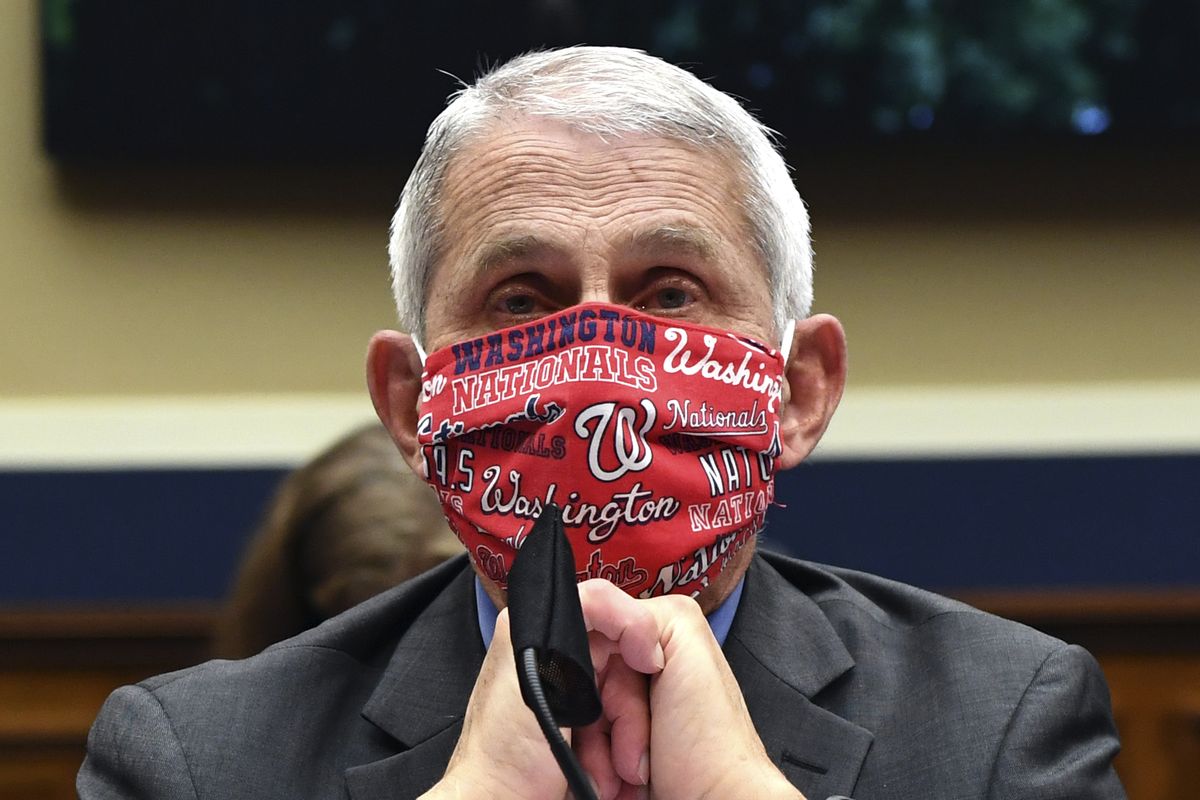What to wear: Feds’ mixed messages on masks sow confusion

Forgive the American people if they’re in a fog about face masks. President Donald Trump and the federal government have done a number on them.
First there was the don’t-do-it phase. Then the nice-but-not-for-me dissonance. Followed by the local-rules-don’t-apply exceptions. Topped off by Trump’s stated suspicion that some people wear masks just to troll him.
It has all added up to a murky message about one of the critical tools in the fight against the coronavirus pandemic. And the politicization of the to-wear-or-not-to-wear debate is clear in recent public polling.
To be clear: The Centers for Disease Control and Prevention recommends that people wear cloth face coverings in public settings where other social distancing measures are difficult to maintain. Some states and local communities require them.
But the messaging disconnect from Washington was evident as recently as Friday, when Vice President Mike Pence defended Trump’s decision to stage two big mask-scarce gatherings in the past week in states with big surges in infections and, in one case, local rules requiring masks.
“We just believe that what’s most important here is that people listen to the leadership in their state and the leadership in their local community and adhere to that guidance whether it has to do with facial coverings or whether it has to do with the size of gatherings,” Pence said.
Early on, the government’s no-mask message was unequivocal. As the first known COVID-19 infections were identified on U.S. soil, top public health officials insisted masks should be reserved for front-line workers.
Later, the CDC issued its recommendation for cloth face coverings in public settings where other social distancing measures were difficult to maintain. But Trump immediately undercut that guidance by flatly stating that he wouldn’t be following it.
He told The Wall Street Journal this month that some people wear masks simply to show that they disapprove of him.
Now, the mask debate is heating up in the South and West, where infections are surging to levels the country hasn’t seen since April, when the Northeast and Midwest were particularly hard-hit.
In Arizona, Florida, and Texas, with GOP governors and huge spikes in infections, there’s been a hesitance to require people to wear masks in public spaces.
But in California, Nevada and North Carolina, with Democratic governors and increasing infection levels, rules requiring masks took effect this past week.
The divide on masks is stark even within Republican-leaning Sun Belt states, where some big-city Democratic mayors have imposed their own mask rules.
Further complicating the messaging is that as Trump questions the effectiveness of masks and refuses to wear one in public, Surgeon General Jerome Adams has taken to Twitter to declare that “I show my patriotism by wearing a face covering in public!”
That would be the same surgeon general who tweeted on Feb. 29: “Seriously people- STOP BUYING MASKS! They are NOT effective in preventing general public from catching #Coronavirus, but if healthcare providers can’t get them to care for sick patients, it puts them and our communities at risk!”
The dithering over face masks has unnerved public health experts as studies suggest that the coverings could have a dramatic impact on limiting the virus’s death toll.
“The public health community, I think, has been very clear that face masks can help reduce the spread of the virus,” said Ayaz Hyder, an epidemiologist at Ohio State University. “The problem is you send mixed messages when the person at the top of the federal government is saying, ‘Nah, I’m OK.’ ”
The political calculations of the debate are playing out all over the country, and evident in polling.
While most other protective measures such as social distancing get broad bipartisan support, Democrats are more likely than Republicans to say they’re wearing a mask when leaving home, 76% to 59%, according to a recent poll by The Associated Press-NORC Center for Public Affairs Research.
In Texas, GOP Gov. Greg Abbott this month issued an executive order prohibiting municipalities from imposing fines or criminal penalties on people who refuse to wear masks. But he has not opposed efforts by some Texas cities and counties to require businesses to impose face mask rules for their employees.
In Arizona, Republican Gov. Doug Ducey said mayors, not the state, would decide their own mask mandates. Richard Mack, president of the Constitutional Sheriffs and Peace Officers Association, declared at an anti-mask rally in Scottsdale this past week that mask mandates were government overreach and wouldn’t be enforced.